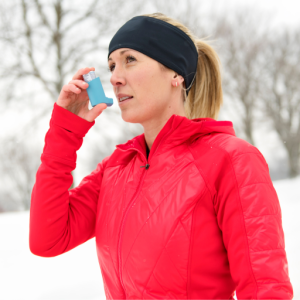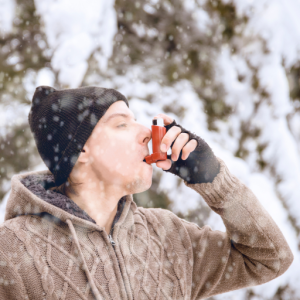Tips to Help Winter-Induced Asthma

Asthma is a disease of the lungs that can cause wheezing, breathlessness, chest tightness and coughing at night or in the early morning. Winter is not a friend to those who suffer from asthma. The dry, cold weather and increase in respiratory illnesses during winter can worsen asthma.
“Winter is a common time for asthma attacks to occur due to weather changes as well as a number of upper respiratory illnesses,” said Lacey Moy, MD, with Memorial Care on North Dirksen. “Creating an asthma action plan with your primary care provider as well as protecting yourself with immunizations against upper respiratory illnesses are important steps in preventing asthma attacks.”
Here are other things that may help:
- Take your medications. Continue your prescribed inhaler routine and medications as directed by your primary care provider.
- Carry your rescue inhaler. Make sure you have this with you at all times.
- Use your inhaler correctly. Ask your primary care provider if you have questions.
- Pay attention to the weather. Be prepared for any sudden changes in temperature. Consider wearing a scarf over your face in frigid temperatures.
- Keep your air clean. Replace air filters in your home and vehicle when needed.
- Breathe through your nose. Breathing through your nose is better for your lungs than breathing through your mouth because your nose warms the air before it reaches the lungs.
- Prevent infection. Wash your hands and stay current with flu and COVID-19 vaccinations to prevent illness.
 Managing your asthma symptoms in the winter months may be a challenge, but if you pay attention to your body, you can avoid worsening symptoms.
Managing your asthma symptoms in the winter months may be a challenge, but if you pay attention to your body, you can avoid worsening symptoms.
Looking for a healthcare provider? Visit Memorial Care to view providers in our 16-county area who are accepting new patients. For a medical emergency, please call 911 or visit any Memorial hospital emergency room.
Related Articles
How the Flu Affects People with Diabetes